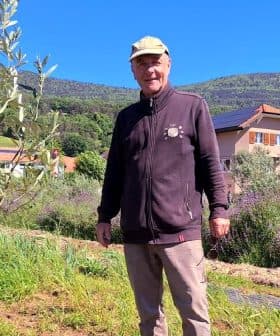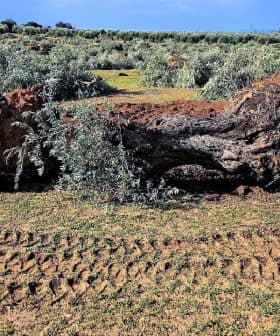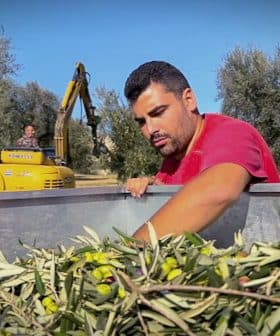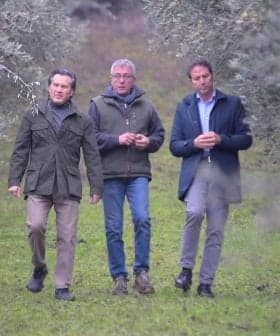La Rioja Preserves Its Olive Heritage to Improve Production
The Government of La Rioja is engaged in a multi-year effort that pursues the recuperation and preservation of indigenous olive varieties in an effort to develop unique olive oils.
 Road to Santiago from Los Arcos to Logroño
Road to Santiago from Los Arcos to LogroñoThe government of La Rioja, Spain is collaborating with local olive growers to recuperate and preserve indigenous olive varieties in order to expand the institutional bank of varieties. Through the Agriculture Farming and Environment Ministry, the government has been collecting samples from olive trees with unique traits and analyzing them at Finca La Grajera to identify and select new varieties for preservation and research.
The recuperation and preservation of indigenous olive varieties with a view to expanding La Rioja’s institutional bank of varieties is the goal of a multi-year initiative undertaken by the government of this Spanish Community with the collaboration of local olive growers.
To meet this end, the Government, through its Agriculture Farming and Environment Ministry, has been collecting vegetal material from olive trees with singular traits related to productivity, olive tree age, type of olive variety, and resistance to diseases. The specimens are gathered with the help of olive growers from La Rioja.
Once rendered to the Ministry, the samples are analyzed, completing genetical identifications that might help determine whether the trees have interesting traits for the bank. When such is the case, terminal sprout plants are obtained to be multiplied and preserved for their later examination and selection at Finca La Grajera.
Finca La Grajera is the institutional farm close to Logroño where the Government of La Rioja keeps experimental crops that are important for the Community, such as vines and olive trees. Olive trees spread through eight hectares at La Grajera.
La Grajera’s complex also hosts La Rioja’s institutional winery and an experimental olive oil mill created in 2006 for the exclusive management of R&D projects about olive oils from La Rioja. The classification of the indigenous olive varieties and the analysis of their performance in super intensive crops are part of these research efforts.
Since this initiative to recuperate indigenous olive varieties began in 2015, one hundred suitable olive trees have been identified, 74 of which had some material extracted. This helped identify five olive varieties not previously cataloged: Picudillo, Negral, Picudo, Aceitunero, and Picalaceña-Cirujal. While the presence of some of these seems to be restricted to one location, Negral appears to have been located at a larger number of municipalities. Other indigenous olive varieties from Rioja including Rendondilla, Royuela, Machona or Empeltre have also been recognized. Since 2007, La Grajera’s germplasm bank has been able to gather and plant 141 different olive varieties.
Indigenous varieties are a vehicle to depict a uniqueness that sets apart particular agri-food products in a global context where the homogenous predominates. In this regard, the work of La Grajera has been instrumental in the identification, selection and multiplication of agri-foods from La Rioja, of which a good example was Tempranillo Blanco, a highly distinct grape variety that because of La Grajera’s thorough work in the past decade began to be bloom among many wine producers in the community.
The effort to recuperate olive varieties seeks to follow a similar path. Single variety olive oils will be elaborated to test their quality and analyze their performance in larger volume crops. La Grajera has vast olive oil producing experience and in fact is responsible for making the Government of La Rioja’s institutional olive oils.
The preservation of these indigenous olive varieties is essential to obtain better plants that can help La Rioja’s olive sector obtain olive crops that are more profitable and of higher quality, and distinct. La Rioja has a Protected Designation of Origin, Aceite de La Rioja, constituted in 2004 to protect the olive oils produced in this community, where oliviculture is centenary.
This year’s campaign to recuperate indigenous varieties focuses on unknown or minority varieties showing special traits that can contribute to the higher quality and business profitability, and on very old olive trees of Redondilla-Redondal and Royuela-Arróniz varieties from different areas within La Rioja, to complete their genetical selection. The campaign will last through December 2018.









